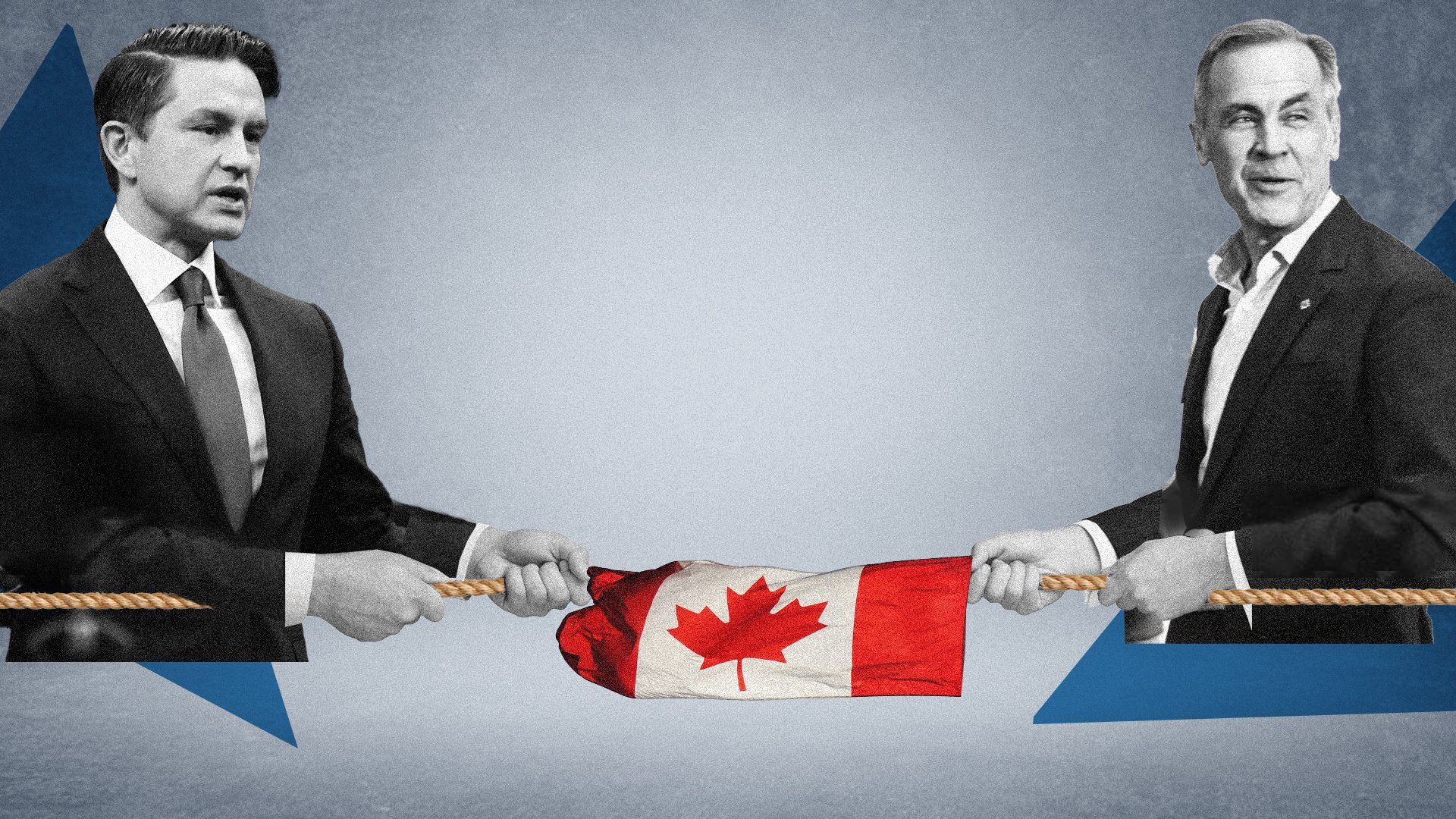Mark Carney laid out his case for governing Canada on Saturday during a friendly interview with former Tony Blair spin doctor Alastair Campbell and short-lived Trump spokesman Anthony Scaramucci on "The Rest Is Politics" podcast.
Carney is likely to become leader of the Liberal Party of Canada on March 9 and then take over from Justin Trudeau for two weeks before calling an election in which he must convince Canadians that he, not Pierre Poilievre, is the right person to handle President Donald Trump.
He is taking a harder line than the Conservative leader.
“What had been our closest friend and ally now is just our neighbor,” he said. “The Americans are just our neighbor. It’s geography as opposed to kinship.”
In a flag-festooned rally in Ottawa on the same day, Poilievre struck a different tone. He said Canada “will bear any burden and pay any price to protect our sovereignty and independence” — while also extending an olive branch.
“We’ve always loved you as neighbors and friends. There is no country with whom we would rather share a border — the longest undefended border in the world.”
Not a professional politician
Poilievre is not free to take as hard a line as Carney because about half of his party’s supporters approve of Trump, and his approach to politics is influenced by the MAGA movement.
Carney attacked Poilievre for that in the podcast.
“Do you really believe in these elements of Canada, or have you been mouthing MAGA talking points with a Canadian twist for the past three years, and don’t buy into them and wouldn’t protect them?”
Campbell, a savvy political messenger, gave him some friendly advice.
“I think if you are a full-time experienced politician, you left that hanging, Mark,” he said. “I’d have gone straight for the jugular. You were setting it up and then you pulled your punch.”
“You’re right,” Carney said with a grimace and a smile. “Fair enough.”
Campbell, who wants Carney to win, is right. Carney is not a “full-time experienced politician.” He doesn’t know how to land a punch. Poilievre, in contrast, has an unerring instinct for his opponent’s weaknesses, and never misses an opening.
No longer a slam dunk
The election ahead was supposed to be a slam dunk. Poilievre has been leading in the polls for three years, usually by double digits. The 9-year-old Trudeau government had wandered to the left of the mainstream, leaving Canadians fed up with the cost of living, a housing crisis, mismanaged immigration, and an activist, woke approach to social issues.
All the pieces were lined up for a massive Conservative election victory until Trump started threatening to annex Canada. In the fallout, the unpopular Trudeau was forced to resign, and Carney — who had been biding his time on the sidelines — stepped forward.
The former governor of central banks in Canada and the UK, Carney has unparalleled economic and crisis-management credentials. Canadians have taken notice. He is raising money and filling halls. The one issue where the Liberals have a brand advantage — managing the relationship with the Americans — is now likely to dominate political debate.
New challenge for Poilievre
Poilievre is still ahead in the polls, but the Liberals have surged. A poll last week from Leger, Canada’s best-rated pollster, found that the electorate would be evenly divided when Carney is leader.
The result was not a complete shock to Leger because a poll the week before found Quebec’s leaderless provincial Liberals surging at the expense of nationalist Quebec parties, says Leger Vice President Sébastien Dallaire.
“There clearly is a generalized Donald Trump effect, so the voters are galvanizing, trying to show national unity against what’s happening in the United States, against Donald Trump more specifically, and parties whose brands are more aligned with defending national unity are certainly benefiting from this.”
Poilievre had planned for the election of 2025 to be a referendum against Trudeau and the carbon tax, but Trudeau is headed for the exit and Carney has promised to kill the consumer carbon tax.
The parties are converging on policies as Liberals discard unpopular Trudeau-era positions and wrap themselves in the flag after a decade in which they held more ambiguous feelings. Poilievrecan complain about their death-bed conversion, but voters are focused on the future, so he has to thread the needle, backing his country against American threats while also not sanctioning the Liberals’ response.
“You want to be heard, but you don’t want to be seen to be a bit tone-deaf or out of touch with what’s happening,” says Dallaire. “So that’s the big, big challenge for Pierre Poilievre right now. And it goes a little bit against his style of politics as well, to find that softer tone a little bit.”
Trump, who seems to despise Trudeau, has thrown the Liberal Party a lifeline — and increased the possibility that the United States will face an unfriendly new government on its northern border this spring.
